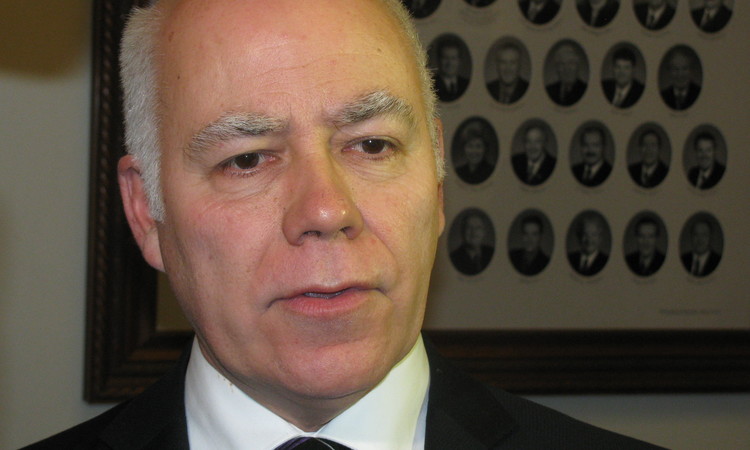Green leader David Coon demands action on payday loans
FREDERICTON • Years ago, René Kayser hated seeing $60 of every $500 paycheque going to a payday loan company, but it was something he felt he couldn’t avoid as he struggled to keep up with bills.
Now working two jobs at a coffee shop and a vegetable stand in Saint John, he doesn’t rely on the lenders anymore. But the experience still smarts.
“They are basically legalized loan sharks,” said Kayser, 44, Friday. “I think limits should be put on the interest they charge.”
Green party leader David Coon also believes more regulations should be slapped on the companies, which generally set up storefronts in poorer neighbourhoods and offer to give clients a portion of their paycheque ahead of time, as long as they pay it back on payday with interest.
Coon asked the justice minister in question period Friday why a new bill limiting interest charges on payday loans that was debated in the legislature and received royal assent on April 30, 2008, was never proclaimed into law. That was two government terms ago under a previous Liberal government.
“Is he aware that the legislation designed to protect the working poor from being charged criminal rates of interest by payday loan companies has been in legislative purgatory for the last seven years?”
Justice Minister Serge Rousselle was not in the house Friday, so Public Safety Minister Stephen Horsman took the question instead.
He said payday loans are being examined by the Financial and Consumer Services Commission, which is looking for public comments on proposed rules surrounding interest rates and other costs associated with payday loans. The commission is an independent Crown corporation that regulates New Brunswick’s financial and consumer services.
The comment period for the public began Jan. 30 and will end March 31.
“Our government will continue to work closely with the commission to ensure consumers are protected and charged a fair interest rate and fees when using payday loans.”
Coon pointed out that some of the loan companies are charging an annual interest rate of 500 per cent or more. Meanwhile, Manitoba limits companies from charging no more than 17 per cent, or $17 for every $100 borrowed. He asked if the minister would ensure New Brunswick’s law would be proclaimed immediately after the commission’s review is finished, “so an immediate end can be put to this exploitation of the working poor by these usurious lending practices.”
Coon said the matter was urgent and couldn’t wait.
“There are New Brunswickers who are seeking deeper and deeper into the financial quicksand of borrowing from these payday loan companies.”
Horsman instead encouraged Coon and anyone who uses the service to forward their ideas to the commission.
“It is true people are living paycheque to paycheque, and that’s why it’s this government’s intention, as one of the pillars of our platform, to create jobs and help families get jobs so they don’t have to use these institutions,” Horsman said.
Afterwards, Coon expressed disappointment the minister wouldn’t commit to regulating the interest rates. He said six provinces, including neighbouring Nova Scotia, have already put restraints on payday loan companies.
“I know of people who have been borrowing from a payday loan company to pay off the borrowings from another payday loan company. The minister is talking about creating jobs as a solution, but these are people with jobs who are borrowing. They are part of the working poor, and that’s why they are going to payday loan companies.”
Horsman was not immediately available for further comment.
Source: Telegraph-Journal